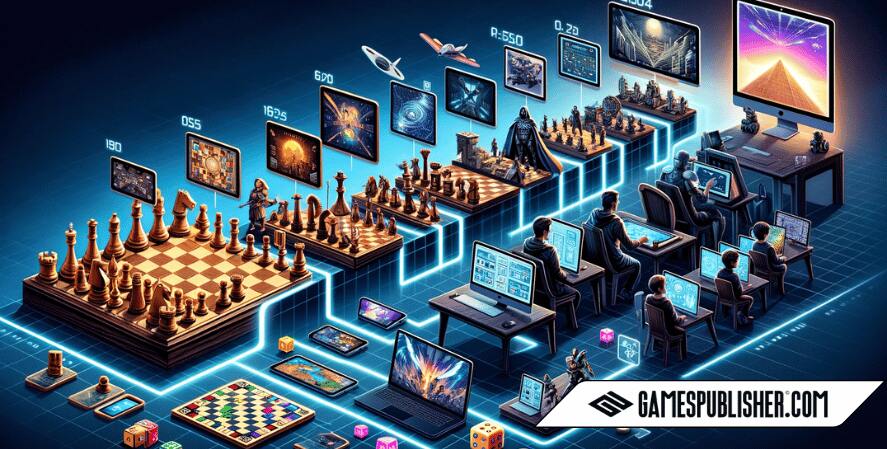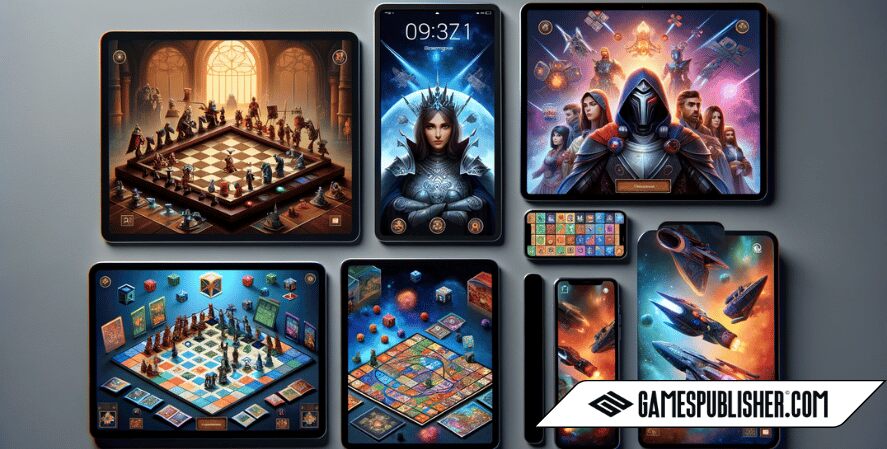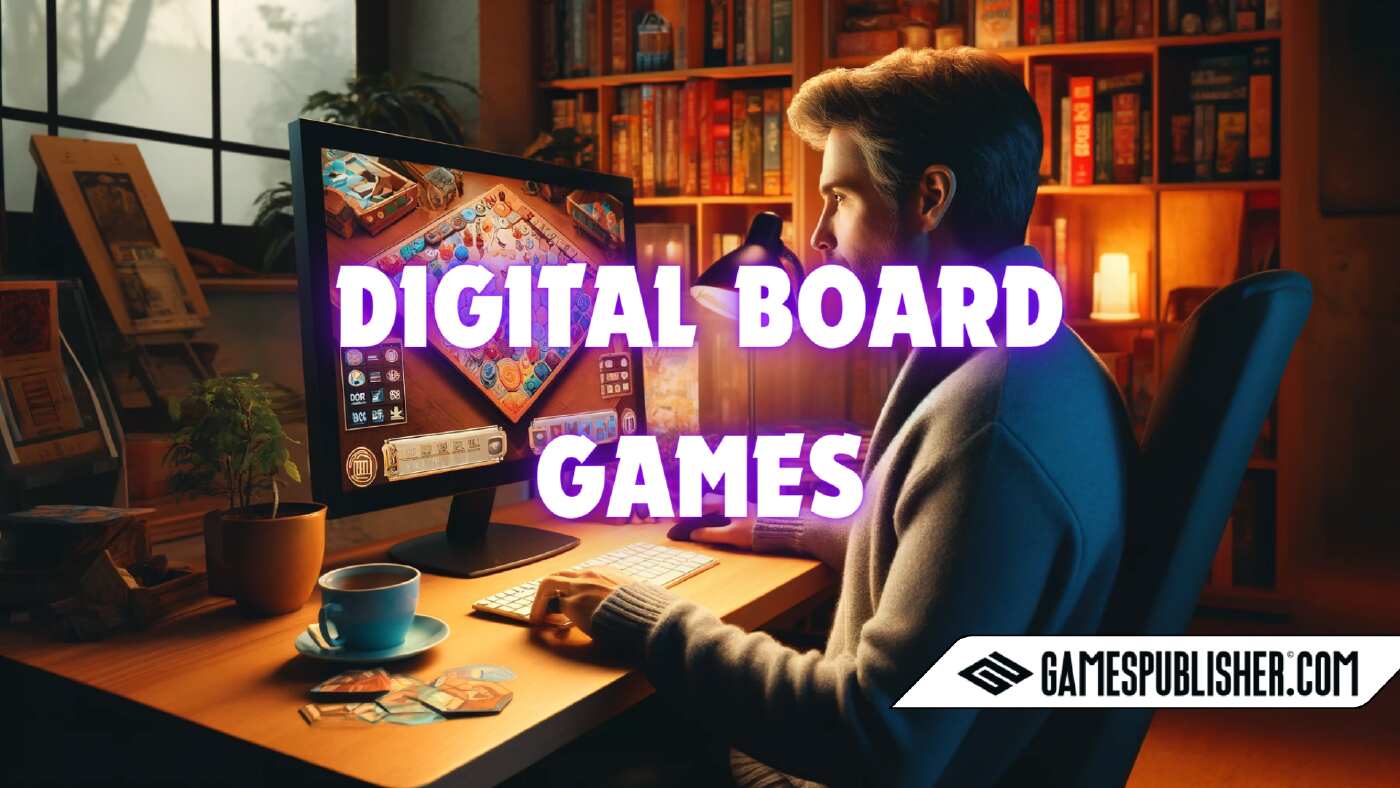In recent years, we’ve witnessed a significant resurgence in the popularity of board games.
This revival isn’t just confined to the physical tables of game enthusiasts but has expanded into the digital realm, blending traditional board game mechanics with digital enhancements.
This fusion caters to nostalgic players and attracts modern gamers, highlighting the enduring relevance of board games in the digital age.
Importance and Relevance to game publishing
Board games have historically been a staple of entertainment, celebrated for their strategic depth and social interaction. As technology has evolved, so too has the format of these games, with many classic board games finding new life as video games.
This transformation has not only introduced traditional games to a broader audience but has also revitalized interest in both board game development and the gaming industry at large.
Scope of Article
This article will explore the various subgenres of board games that have transitioned into video games, the benefits of digital adaptation, and how these transformations have influenced gaming culture and market trends.
By delving into the evolution, types, and market dynamics of digital board games, we’ll uncover the significant impact of this sector on the wider gaming industry.
The Evolution of Board Games into Digital Formats

Historical Context
The journey from physical board games to their digital counterparts began with classic titles such as Chess and Checkers, which were among the first to be digitized.
The ability to play these games on computers and later online revolutionized how people accessed and played board games, setting the foundation for more complex adaptations.
Technological Enhancements
Advancements in technology have been pivotal in the digitization of board games. Modern video games can offer rich, interactive experiences that are visually engaging and accessible from virtually anywhere.
These enhancements have not only made games more engaging but also more accessible, reaching a global audience with ease.
Types and Categories of Board Games as Video Games
Strategy Games
Games like Chess, Risk, and Go have made a seamless transition into digital formats, where strategic planning and forethought remain central to the gameplay experience. These games benefit significantly from AI opponents and online multiplayer capabilities, offering players endless challenges.
Family Games

Digital adaptations of Monopoly and The Game of Life allow families to enjoy these classics from the comfort of their devices. These versions often include customizable rules and interactive features that enhance the playing experience.
Party Games
With digital versions of Codenames and Pictionary, party games have found a new venue. These games utilize connectivity to bring people together, creating virtual spaces where players can enjoy light-hearted competition.
Cooperative Games
Digital versions of cooperative games like Pandemic allow players to team up from remote locations, tackling challenges together in a coordinated effort. This has been particularly appealing during times when physical gatherings are limited.
Role-playing Games (RPGs)
Dungeons & Dragons and similar RPGs have thrived in digital formats, where complex storylines and character development can be enhanced with visuals, audio, and expansive world-building.
Puzzle Games
The transition of puzzle games like Tetris and Portal to digital formats has opened up new possibilities for game design, integrating more complex puzzles and interactive elements that are not possible in physical formats.
Deckbuilding Games
“Dominion” and “Star Realms” are prime examples of deckbuilding games that have made successful leaps to digital platforms, maintaining core mechanics while introducing digital-only features like automated scoring and virtual opponents.
Additionally, “Slay the Spire” and “Poker Quest” by Playsaurus are notable for their innovative approaches to the genre. “Slay the Spire” combines roguelike elements with deckbuilding, offering new challenges and strategies with each run. “Poker Quest” infuses traditional deckbuilding with elements of poker, creating a unique challenge that emphasizes strategic use of cards in a way that mimics poker hands.
These games expand the boundaries of traditional deckbuilding games by incorporating unique gameplay elements that enhance user engagement and replayability.
From Physical to Digital
Each category of board games adapts differently to the digital format. While maintaining core mechanics, developers can introduce interactive features and online multiplayer options, enhancing the gameplay experience and broadening the game’s appeal.
Popular Subgenres of Board Games as Video Games

Strategy and War Games
“Risk” and “Civilization” exemplify the complex strategic elements maintained in their video game adaptations. These games offer players a mix of tactical gameplay and extensive replayability through digital platforms.
Fantasy and Adventure
Games like “Gloomhaven” merge role-playing elements with board game mechanics in a digital format, creating rich, narrative-driven experiences that are both engaging and visually compelling.
Puzzle and Family-Friendly Games
“Catan” and “Ticket to Ride” stand out for their strategic depth and accessibility, making them popular among players of all ages. Their digital versions replicate the social experience of the board games while making setup and play quicker and easier.
Cognitive and Social Benefits
Educational Value
Digital board games continue to promote cognitive skills such as strategic thinking and problem-solving. These games also introduce younger players to basic principles of economics, resource management, and logistical planning.
Social Interaction
Despite the shift to online platforms, digital board games preserve a communal aspect. They facilitate connections among friends and family members, even when they are physically apart, and often include features that support player interaction.
Market Trends and Future Outlook

Growth Factors
The digital board game market has seen robust growth, driven by technological advancements and an increasing appetite for accessible, engaging entertainment options. The sector’s expansion is reflected in rising sales figures and the burgeoning variety of games available.
Innovations and Future Trends
Looking ahead, the sector may see innovations like virtual and augmented reality integration, which could revolutionize how digital board games are played and experienced. Such technologies would offer even more immersive and interactive environments, potentially attracting a new wave of gamers.
Challenges in Digital Adaptation
Maintaining Essence
One of the significant challenges in adapting board games to digital formats is maintaining the game’s original feel and spirit. Developers must balance innovation with respect for traditional gameplay to avoid alienating longtime fans.
Market Competition
Digital board games also face stiff competition from other forms of digital entertainment, such as streaming services and mobile apps. Standing out in a crowded market requires not only innovative game design but also effective marketing strategies.
Conclusion
Summary of Insights
The transformation of board games into digital formats represents a significant shift within the gaming industry.
This evolution has not only expanded the reach and scope of traditional board games but also introduced them to a new generation of players, ensuring their place in the digital entertainment landscape.
Final Thoughts
As we look to the future, the digital board game industry is poised for further growth and innovation. For developers and players alike, this promises exciting developments and new opportunities in the world of gaming.
Loading survey...

